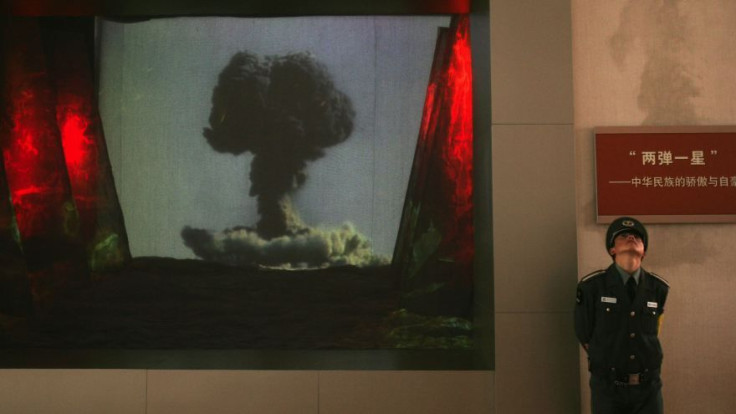China Is Expanding Its Nuclear Capabilities While Russia And The US Work To Reduce Theirs
China added 10 warheads to its nuclear arsenal in 2012, according to a recent report from Swedish think tank Stockholm International Peace Research Institute, or SIPRI. It was the only permanent member of the U.N. Security Council to expand its nuclear arsenal last year.
The report was a part of the SIPRI Yearbook 2013, which was launched on Monday and assesses the current state of international security, armaments and disarmament. The other nuclear-weapon states under the terms of the Nuclear Non-Proliferation Treaty include France, Russia, the United States and the United Kingdom.

The nine states with known nuclear arsenals -- the U.S., Russia, the UK, France, China, India, Pakistan, North Korea and Israel (Israel has never admitted to having nukes but is widely known to possess them) -- had approximately 17,265 nuclear weapons at the start of 2013, a decrease from the 19,000 at the beginning of 2012. Of those, China has only 250 warheads, a small arsenal compared to Russia and the U.S., which boast 8,500 and 7,700 warheads, respectively.
Unlike China, Russia and the U.S. are reducing their inventories of strategic nuclear weapons under the terms of the Treaty on Measures for the Further Reduction and Limitation of Strategic Offensive Arms.
China has previously been the only nuclear-weapon state to give an unqualified assurance not to use or threaten to use nuclear weapons against non-nuclear states, according to Shanghaiist, a Chinese news blog. However, in a defense paper last month, this promise was omitted, according to Quartz.
In December, President Xi Jinping said China’s nuclear weapons were “a strategic pillar of our great power status."
"That’s a sharp break from previous Chinese officials, who have downplayed the country’s nuclear capabilities,” James Acton, a senior associate at the Carnegie Endowment for International Peace, wrote on the topic for the New York Times. Xi did not repeat China’s no-first-use promise, Acton added.
China’s quickly modernizing military is currently the world’s second largest by spending, according to the Economist. While the likelihood of nuclear escalation with China is low, the potential for conflict is high, considering China’s territorial disputes with Japan, India and several Southeast Asian nations, Acton wrote. He added that the likelihood of nuclear escalation with China is low and that Beijing may just be responding to security issues like North Korea’s most recent threats of war or increased U.S. military presence in the region.
© Copyright IBTimes 2025. All rights reserved.





















